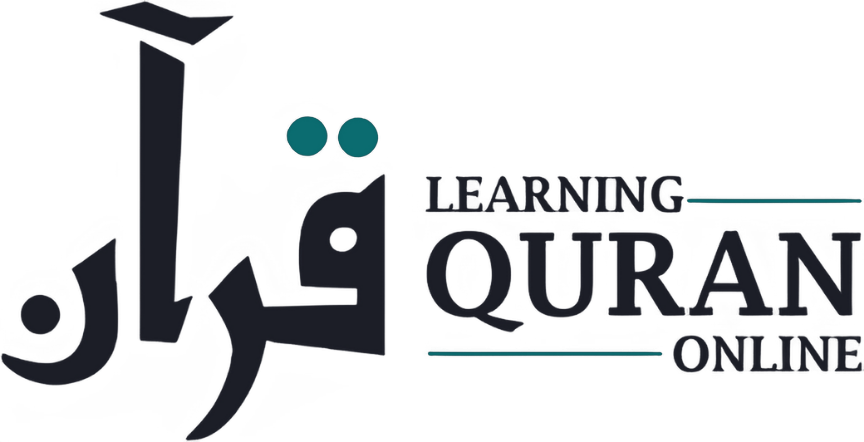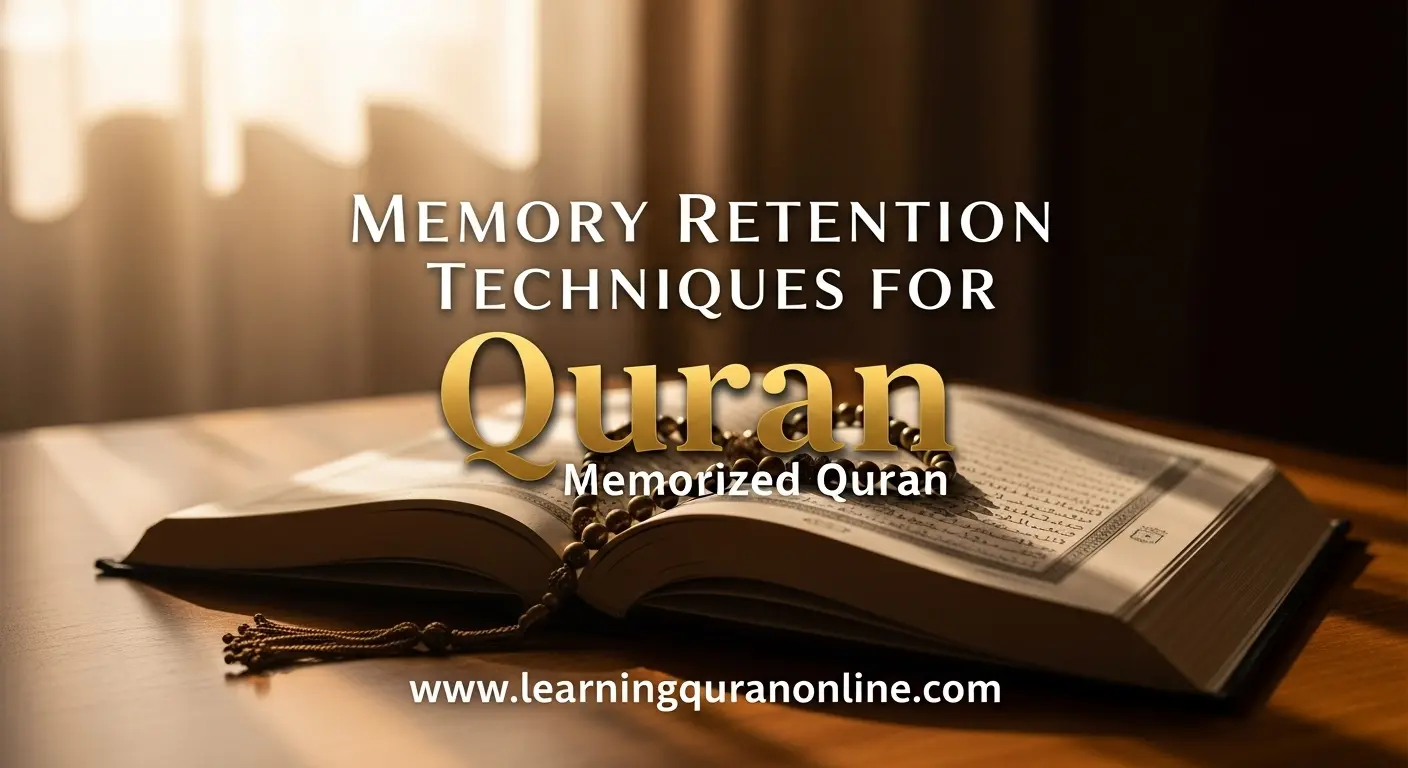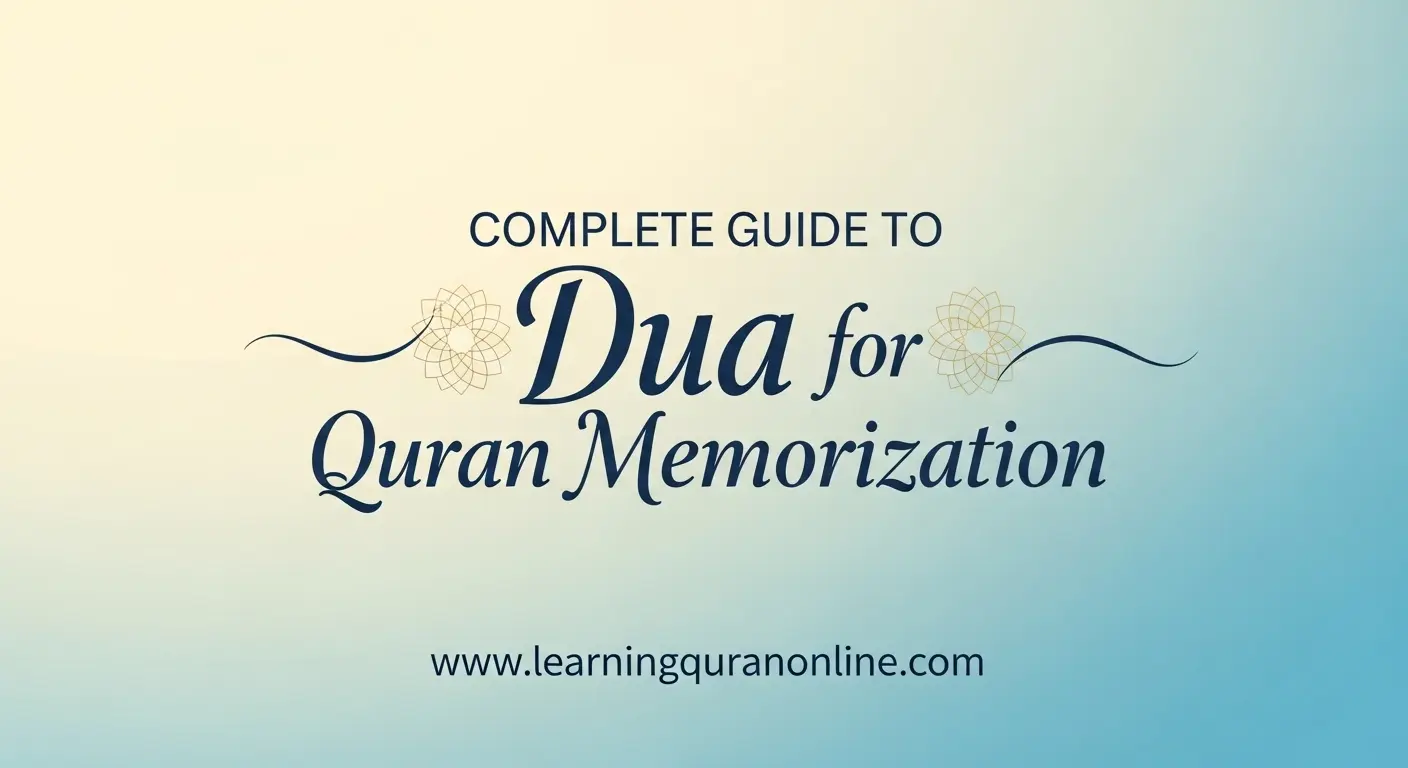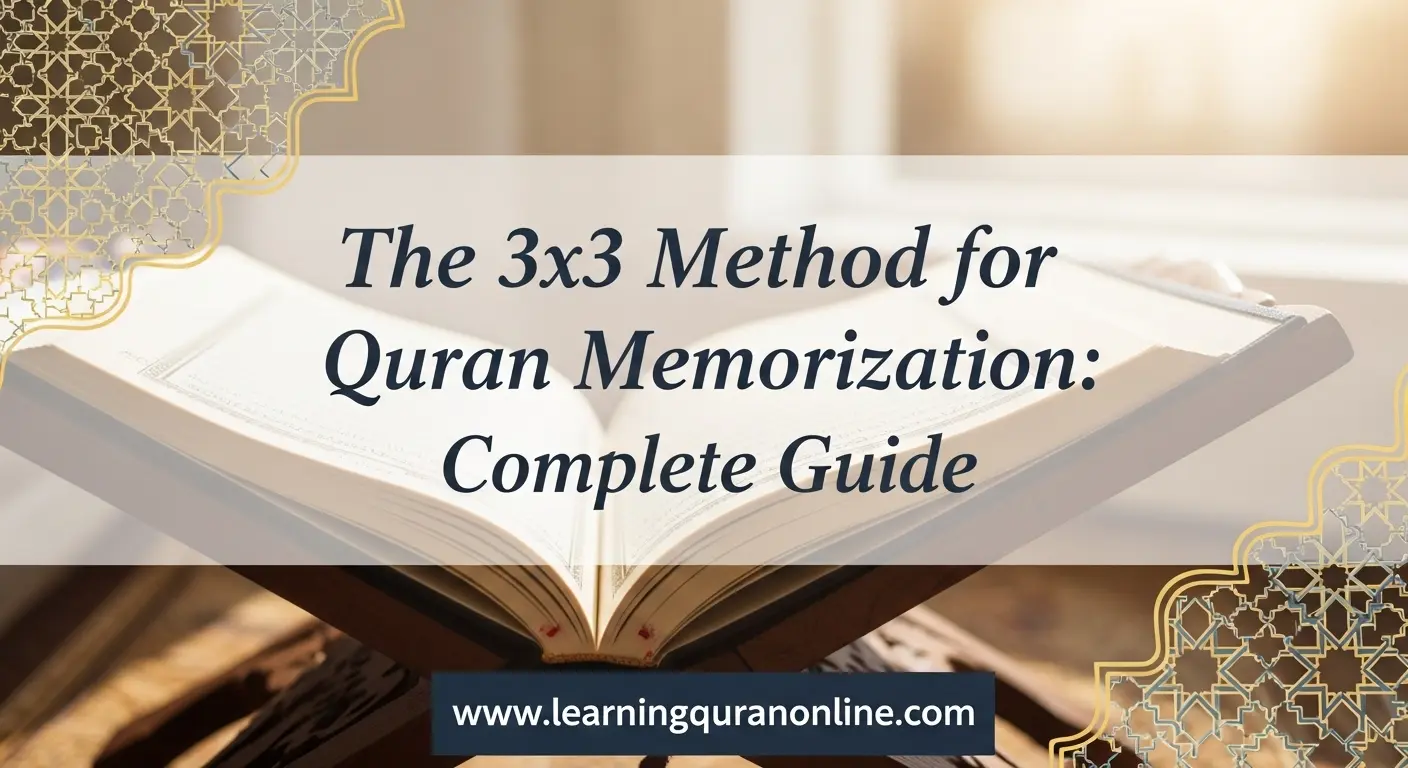Table of Contents
ToggleWhy Choose an Online Hifz Program?
Online Hifz programs offer flexibility, accessibility, and a variety of learning models—from one-to-one tutoring to small group classes and self-paced app-driven courses. For many families and adult learners, an online Hifz course means access to native Arabic teachers, certified hafiz instructors, and modern learning management systems that track progress and provide audio recording review and revision plans.
Primary benefits of online Quran memorization programs
- Flexible schedules and private or group classes
- Qualified, experienced Hifz tutors and native Arabic teachers
- Structured Hifz curriculum aligned with tajweed rules
- Progress tracking, muraaja’ah schedules, and revision systems
- Access to digital Quran apps, recordings, and lesson notes
- Trial classes, transparent pricing, and parent dashboards
Quran Memorization (Hifz) Complete Guide
Key Criteria to Compare When Choosing an Online Hifz Course
Not all online Hifz classes are created equal. When comparing the best online Hifz programs, evaluate each against these critical factors to ensure effective Quranic memorization and proper recitation.
1. Teacher Qualifications and Experience
Look for certified Hifz teachers, native Arabic-speaking instructors, and tutors with proven experience teaching Quran memorization for your learner’s age. Many top online Quran Hifz classes provide teacher profiles, demo recordings, and references from former students.
2. One-to-One vs. Group Classes
One-to-one Hifz lessons offer personalized pacing, focused tajweed correction, and tailored muraaja’ah plans. Small group classes can be more affordable and provide peer motivation, but ensure the teacher-to-student ratio supports active recitation and correction.
3. Curriculum Structure and Tajweed Integration
A solid Hifz program blends memorization schedules with tajweed training so students not only memorize but recite correctly. Check if the course uses systematic lesson plans, chunking techniques (parah/pages), and revision cycles.
4. Muraaja’ah (Revision) System and Tracking
Consistent revision is the backbone of Quran memorization. The best online hifz programs include daily, weekly, and monthly muraaja’ah schedules, progress reports, and parent dashboards to monitor consistency and retention rates.
5. Technology and Learning Tools
Interactive whiteboards, audio recording features, digital Quran apps, and LMS (learning management systems) enhance online Hifz training. These tools allow students to submit recitations, receive feedback, and access lesson notes at any time.
6. Trial Lessons, Pricing, and Flexibility
Most reputable online Quran memorization programs offer trial classes and clear pricing tiers. Compare hourly rates, package deals, cancellation policies, and options for accelerated or part-time Hifz tracks.
Types of Best Online Hifz Programs Compared
Here we compare common program models so you can match your needs (child vs. adult, full-time vs. part-time, budget vs. premium) with the right learning system.
A. One-to-One Personalized Hifz Programs
Best for focused memorization, one-to-one Hifz classes pair students with a dedicated tutor who creates a tailored schedule, monitors daily muraaja’ah, and corrects tajweed in real time. These are ideal for beginners and serious learners aiming to finish Hifz with excellent recitation quality.
- Pros: Personalized, fast progress, in-depth tajweed correction
- Cons: More expensive than group classes
B. Small Group Hifz Classes
Small group Hifz lessons can be cost-effective and motivating. They work well for younger students who benefit from a structured school-like environment and peer accountability. Ensure class sizes remain small to allow sufficient teacher attention.
- Pros: Affordable, social learning, peer encouragement
- Cons: Less individualized feedback
C. App-Based Self-Paced Hifz Courses
Digital Quran memorization apps and self-paced Hifz programs are suitable for disciplined adults who can follow guided lessons and revision plans independently. These often include audio recitations, progress trackers, and spaced repetition systems.
- Pros: Budget-friendly, flexible, mobile access
- Cons: Limited live teacher feedback, may require high self-discipline
D. Hybrid & Institutional Online Hifz Academies
Some online Hifz academies combine live lessons with a structured curriculum, assessment milestones, and certification. These programs may offer recorded sessions, regular exams, and a dedicated parent or student portal for progress tracking.
- Pros: Structured, standardized, reliable outcomes
- Cons: May follow a rigid pace that’s less adaptable for some learners
How to Memorizing the Quran: 7 Practical Steps
Top Features to Expect from the Best Online Hifz Programs
When evaluating options, ensure the program includes:
- Qualified hafiz and certified tutors with strong tajweed knowledge
- Personalized muraaja’ah schedules and retention strategies
- Interactive sessions with clear audio and video quality
- Trial lessons and transparent refund/cancellation policies
- Parental reporting or student dashboards for tracking progress
- Flexible timing, weekend classes, and catch-up lessons
- Performance metrics and periodic assessments leading to certification
How to Evaluate Quality: Questions to Ask Before Enrolling
Before you commit to an online Quran memorization program, ask these practical questions to gauge quality and fit:
- What are the teacher’s qualifications and experience in Hifz training?
- Is there a trial class or assessment to determine the starting level?
- How is tajweed integrated into the Hifz process?
- What is the muraaja’ah policy—daily, weekly, and monthly review plans?
- How does the academy track progress and provide feedback?
- Are lessons one-to-one, small group, or self-paced?
- Does the program offer certificates or exams upon completion?
Sample Comparison: What a Parent Might Find
Here’s a quick snapshot of three hypothetical program models to illustrate differences:
- Premium One-to-One Hifz Program: Native Arabic tutor, daily 30–60 min one-on-one, custom muraaja’ah plan, weekly progress reports, higher monthly fee.
- Balanced Small Group Hifz School: 3–5 students per class, two sessions daily, shared muraaja’ah schedule, moderate pricing, steady progress with peer support.
- App-Based Accelerated Hifz Track: Self-paced modules, audio recitations, spaced repetition, affordable subscription, best for self-disciplined adults with existing tajweed skills.
Online Quran Learning via Zoom
Pricing Expectations and Value
Pricing for online Hifz programs varies widely. One-to-one tutoring commands a premium due to personalized attention; small group programs and app-based courses tend to be more affordable. When comparing costs, weigh teacher quality, lesson frequency, included resources (recordings, materials), and the availability of muraaja’ah support. Value is best measured by retention, correct recitation (tajweed), and structured progress—not just hourly rates.
Tips for Success in an Online Hifz Course
- Maintain a consistent daily schedule and dedicated learning environment.
- Use audio recording features to review and correct recitation.
- Prioritize muraaja’ah—daily revision beats last-minute cramming.
- Engage parents or mentors for younger learners to ensure accountability.
- Combine tajweed lessons with memorization from the start.
- Request periodic assessments and adjust pace based on retention data.
Why Accreditation and Testimonials Matter
Reputable online Hifz academies often publish student testimonials, success stories (number of hafiz graduates), and details about accreditation or partnerships. These social proofs show training quality and outcomes. If possible, ask for recent references or sample recital videos from the academy.
Conclusion: Choosing the Best Online Hifz Program for You
Choosing the best online Hifz program depends on your goals, budget, learning style, and the age of the student. For many families, a personalized one-to-one program with a qualified Hifz tutor and a strong muraaja’ah system yields the best results. Others may prefer the affordability of small group classes or the convenience of app-based self-study. Whichever route you take, prioritize teacher quality, tajweed integration, consistent revision, and transparent progress tracking.
If you’re exploring reputable options, consider trial lessons, read reviews, and evaluate teacher profiles closely. Learning Quran Online is one of the many online Quran learning academies that illustrate how an organized curriculum, native tutors, and modern tools can support a successful Hifz journey.
FAQs
How long does it take to complete Hifz online?
Duration varies greatly depending on pace, daily commitment, prior Quranic knowledge, and revision discipline. Intensive programs can take 1–2 years for dedicated learners, while part-time learners may take several years.
Can adults memorize the Quran online?
Yes. Many adult learners successfully complete Hifz online using tailored schedules, tajweed classes, and disciplined muraaja’ah routines. Choosing a program with flexible timing and strong teacher feedback is crucial.
Are online Hifz exams and certification recognized?
Some online academies offer internal certification or externally recognized assessments through affiliated institutions. Verify the accreditation and the recognition of the certificate if that is important to you.
For more guidance on selecting the best online Hifz program or to try a demo class, reach out to trusted academies and ask for trial lessons and teacher interviews before making a decision.
















